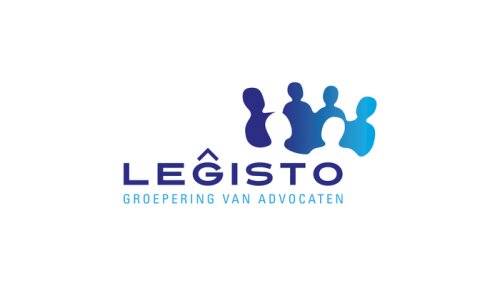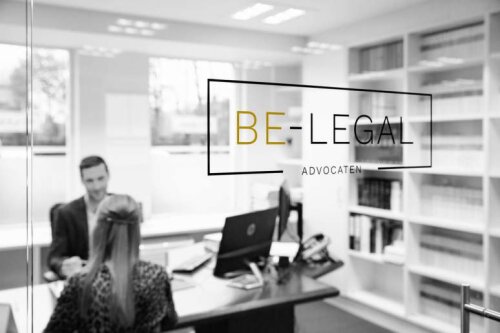Best Environmental Law & Compliance Lawyers in Mol
Share your needs with us, get contacted by law firms.
Free. Takes 2 min.
List of the best lawyers in Mol, Belgium
About Environment Law in Mol, Belgium
Environment law in Mol, Belgium covers a wide range of regulations and protections aimed at preserving natural resources, ensuring a healthy living environment, and controlling pollution within the municipality. As a leading region in scientific research and industrial activity, Mol is subject to both federal and regional environmental legislation, including policies from the Flemish government. Residents and businesses must comply with legal standards relating to land use, waste management, water and air quality, industrial emissions, and the protection of natural habitats. These laws not only safeguard public health but also preserve the unique biodiversity and landscapes that characterize the area.
Why You May Need a Lawyer
There are many situations in which individuals or organizations may require legal assistance in the field of environment in Mol. Common reasons include:
- Disputes over land use, zoning, or development permits
- Challenges related to environmental permits for business or construction projects
- Allegations of environmental harm, such as pollution or dumping
- Negotiations with local authorities for remediation of contamination or compliance orders
- Appealing decisions regarding environmental impact assessments
- Guidance in understanding complex regulations applicable to specific activities
- Legal responsibility in case of accidental or long-term damage to natural environments
- Participation in public consultations or objections to projects that could affect the environment
Local Laws Overview
Mol is part of the Flemish Region, which means its environmental regulations are shaped primarily by both federal Belgian law and the Flemish Decree on the General Provisions concerning Environmental Policy (DABM). Some essential aspects include:
- Permits: Environmental permits are mandatory for most industrial and commercial activities. These permits regulate emissions, waste, noise, and the storage of hazardous substances.
- Zoning and Land Use: The spatial planning in Mol determines how land may be used, with strict controls on activities in residential, rural, and protected areas.
- Pollution Control: There are stringent limits on air and water pollution. Regular monitoring is required, and violations can lead to significant fines or mandatory remediation efforts.
- Waste Management: Regulations demand proper collection, sorting, and disposal of both household and industrial waste.
- Nature Conservation: Certain areas around Mol, such as nature reserves or protected zones, have special restrictions to preserve biodiversity and landscape value.
- Public Participation: Citizens and organizations have the right to review permit applications and submit objections or comments during public inquiries.
Frequently Asked Questions
What is an environmental permit and do I need one in Mol?
An environmental permit is a legal authorization needed for various industrial, agricultural, or commercial activities that could affect the environment. In Mol, almost all businesses and development projects require such permits before operations can start.
Who is responsible for enforcing environmental laws in Mol?
Environmental enforcement is carried out by local municipal officers, the Flemish Environment Agency (Vlaamse Milieumaatschappij), and relevant inspection services. These bodies monitor compliance and can issue warnings, fines, or orders.
Can I appeal if my request for an environmental permit is denied?
Yes, permit denials can be appealed through administrative procedures. A lawyer can help you prepare the necessary documentation and represent your interests during the process.
What are the penalties for illegal dumping or polluting in Mol?
Penalties can range from administrative fines to criminal prosecution for severe violations. You may also be required to fund or perform cleanup and remediation activities.
How can I report an environmental violation?
You can contact the municipal environmental service or the Flemish Environment Agency. Reports are treated confidentially, and authorities will investigate suspected violations.
What rights do I have if a planned development may harm my local environment?
You have the right to participate in public inquiries, submit objections, and request additional studies or hearings. Legal counsel can help you navigate these processes and ensure your concerns are heard.
Does environmental law differ between Mol and other municipalities?
While core regulations are set at the Flemish and federal levels, implementation details and local planning rules may differ, making it important to consult local ordinances in Mol.
Am I liable for contamination found on property I purchase?
Property buyers can be held liable for contamination, even if it occurred before acquisition. Conducting an environmental assessment before purchase is highly recommended.
Do environmental laws affect private homeowners?
Yes, particularly regarding waste disposal, garden burning, use of pesticides, and noise restrictions. Renovation or building will also require permits if work may affect the environment.
Is public access allowed in protected nature areas in Mol?
Access is generally permitted for recreation, but specific activities such as motorized vehicles, fires, or picking plants may be restricted to protect sensitive habitats.
Additional Resources
Several organizations and governmental bodies provide information and support for those dealing with environmental law in Mol:
- Mol Municipal Environment Service: Offers local guidance and handles permit applications
- Flemish Environment Agency (VMM): Oversees water, air, and noise pollution and publishes reports and guidance
- Departement Omgeving (Flemish Department of Environment): Provides policy updates and regulatory frameworks
- Public Waste Agency of Flanders (OVAM): Specializes in soil and waste management
- Local environmental advocacy groups: Offer support and representation for community concerns
Next Steps
If you need legal assistance regarding an environmental issue in Mol, consider taking the following steps:
- Gather all relevant documents such as permits, correspondence, or notices related to your issue
- Consult publicly available guides from the authorities listed above for initial guidance
- Contact a local lawyer who specializes in environmental law to discuss your situation
- Schedule a consultation to review your options and develop a strategy for compliance or dispute resolution
- Participate in any required public processes, hearings, or appeals within the required deadlines
Lawzana helps you find the best lawyers and law firms in Mol through a curated and pre-screened list of qualified legal professionals. Our platform offers rankings and detailed profiles of attorneys and law firms, allowing you to compare based on practice areas, including Environmental Law & Compliance, experience, and client feedback.
Each profile includes a description of the firm's areas of practice, client reviews, team members and partners, year of establishment, spoken languages, office locations, contact information, social media presence, and any published articles or resources. Most firms on our platform speak English and are experienced in both local and international legal matters.
Get a quote from top-rated law firms in Mol, Belgium — quickly, securely, and without unnecessary hassle.
Disclaimer:
The information provided on this page is for general informational purposes only and does not constitute legal advice. While we strive to ensure the accuracy and relevance of the content, legal information may change over time, and interpretations of the law can vary. You should always consult with a qualified legal professional for advice specific to your situation.
We disclaim all liability for actions taken or not taken based on the content of this page. If you believe any information is incorrect or outdated, please contact us, and we will review and update it where appropriate.









